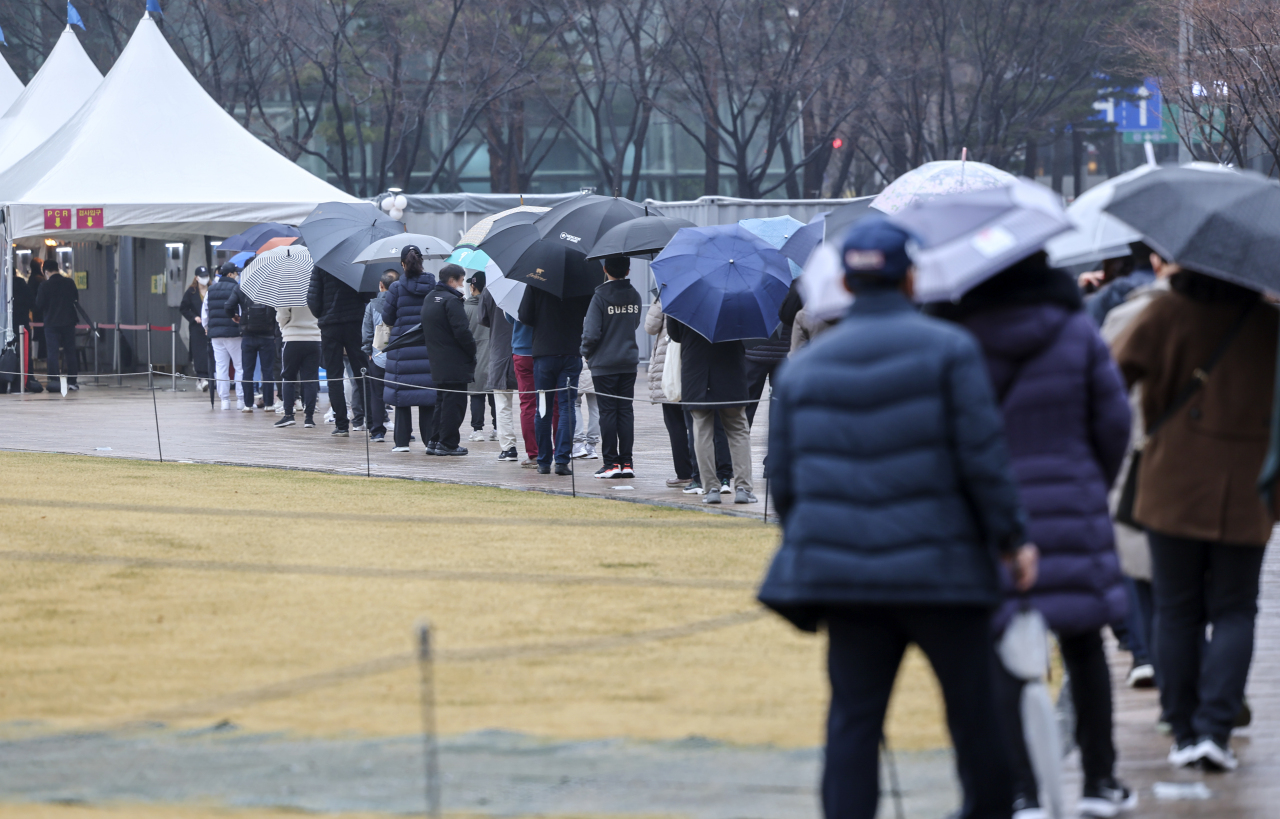South Korea‘s daily COVID-19 infections stayed over 350,000 for two days in a row, government data showed, Sunday.
According to the Korea Disease Control and Prevention Agency, the country reported 350,190 new COVID-19 cases during the 24 hours of Saturday. The daily tally was slightly down from the all-time high of 383,665 seen the previous day. The decrease was likely due to fewer people being tested during the weekend.
Of the locally transmitted cases reported, infections from Seoul and the greater capital area reported 179,520 infections, accounting for 51.3 percent of the total daily tally. Seoul reported 67,814 new cases. The surrounding Gyeonggi Province and the western city of Incheon added 91,469 and 20,237 new infections.
As the omicron continues to grip the country, the number of COVID-19 related deaths and critically ill patients also remained high.
On Saturday, the country added 251 more COVID-19 deaths, down 18 from the previous day’s 269. The death toll reached 10,395, and the fatality rate was 0.16 percent.
The number of seriously ill COVID-19 patients also reached 1,074 during the same period, up eight from the previous day’s 1,066.
The hospital bed occupancy rate for seriously ill COVID-19 patients grew as well. As of midnight Saturday, the hospital bed occupancy rate reached 64.1 percent, or 1,763 out of 2,751, climbing 2.2 percent point from the previous day.
The number of patients who are under at-home treatment hit a fresh high of 1.57 million, up from 135,789 a day earlier.
The number of COVID-19 related deaths and severe cases are expected to increase in the following week as the country has not turned the corner on the omicron wave.
According to the country’s health authorities, the omicron wave will peak this week. The government currently sees that the average of daily cases for this week can reach 370,000.
The number of daily infections, however, can potentially increase further as the government plans to speed up COVID-19 tests by using rapid antigen self-test kits.
Starting on Monday, people who test positive for COVID-19 in a rapid antigen test at local hospitals will no longer have to go for an additional polymerase chain reaction test. The government has designated a total of 7,588 hospitals nationwide where people can get official results for their rapid antigen tests.
Those who receive rapid antigen tests at places other than designated hospitals will still have to receive PCR tests for official results.
The government previously said it made this decision to better respond to the omicron wave with a limited amount of healthcare resources.
Potential increases in student infections are also expected as the government has decided to allow students to go to schools even if their family members are infected with COVID-19, starting on Monday.
The country’s health authorities said the government will continue to make sure students receive PCR tests and stay home if they have been in close contact with their family member who tests positive.
The government added it will announce its plan to vaccinate children aged between 5 and 11 on Monday, to counter the increasing number of COVID-19 infections among children population.
Meanwhile, 32.1 million people, or 62.6 percent of the country’s 52 million population, had received booster shots as of midnight Saturday. The number of fully vaccinated people came to 44.4 million, which accounts for 86.6 percent of the country‘s total population, the country’s health authorities said.
By Shim Woo-hyun (
ws@heraldcorp.com)








